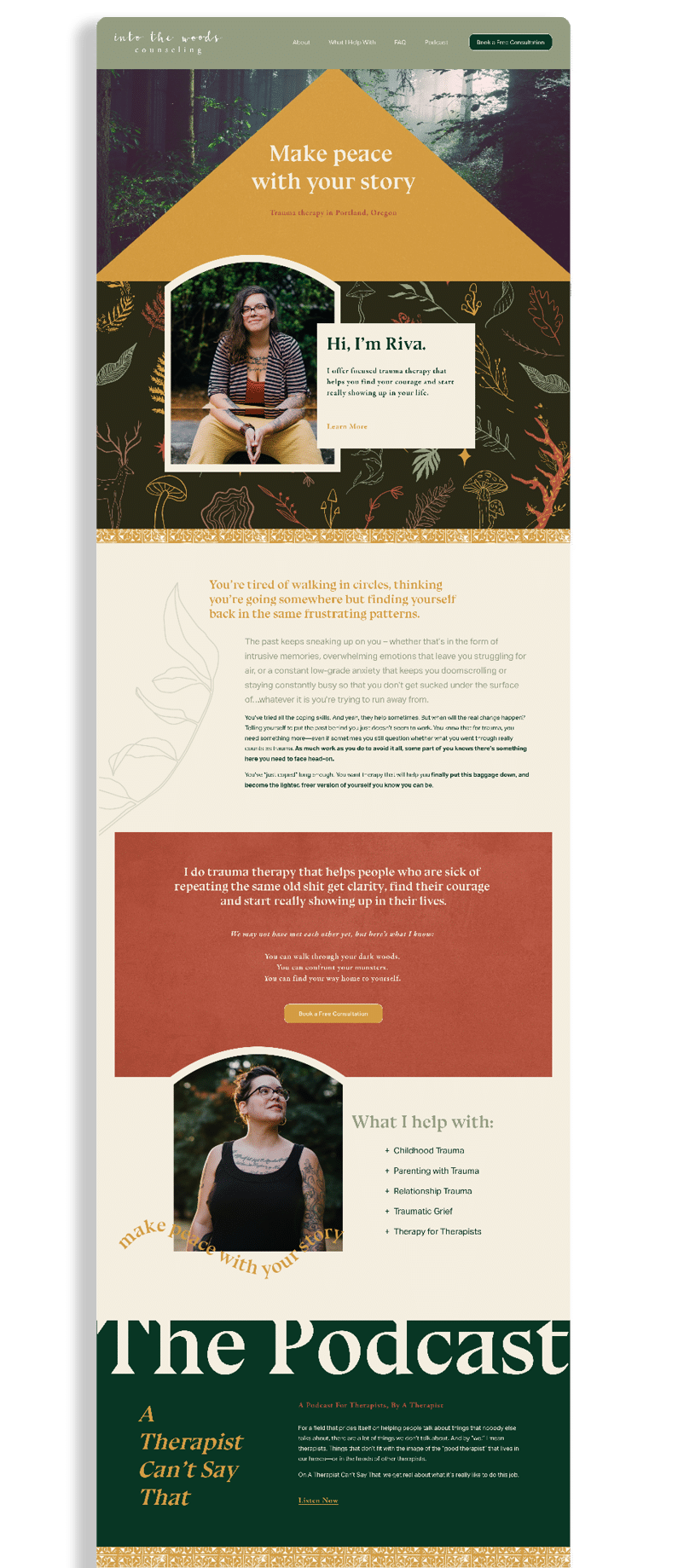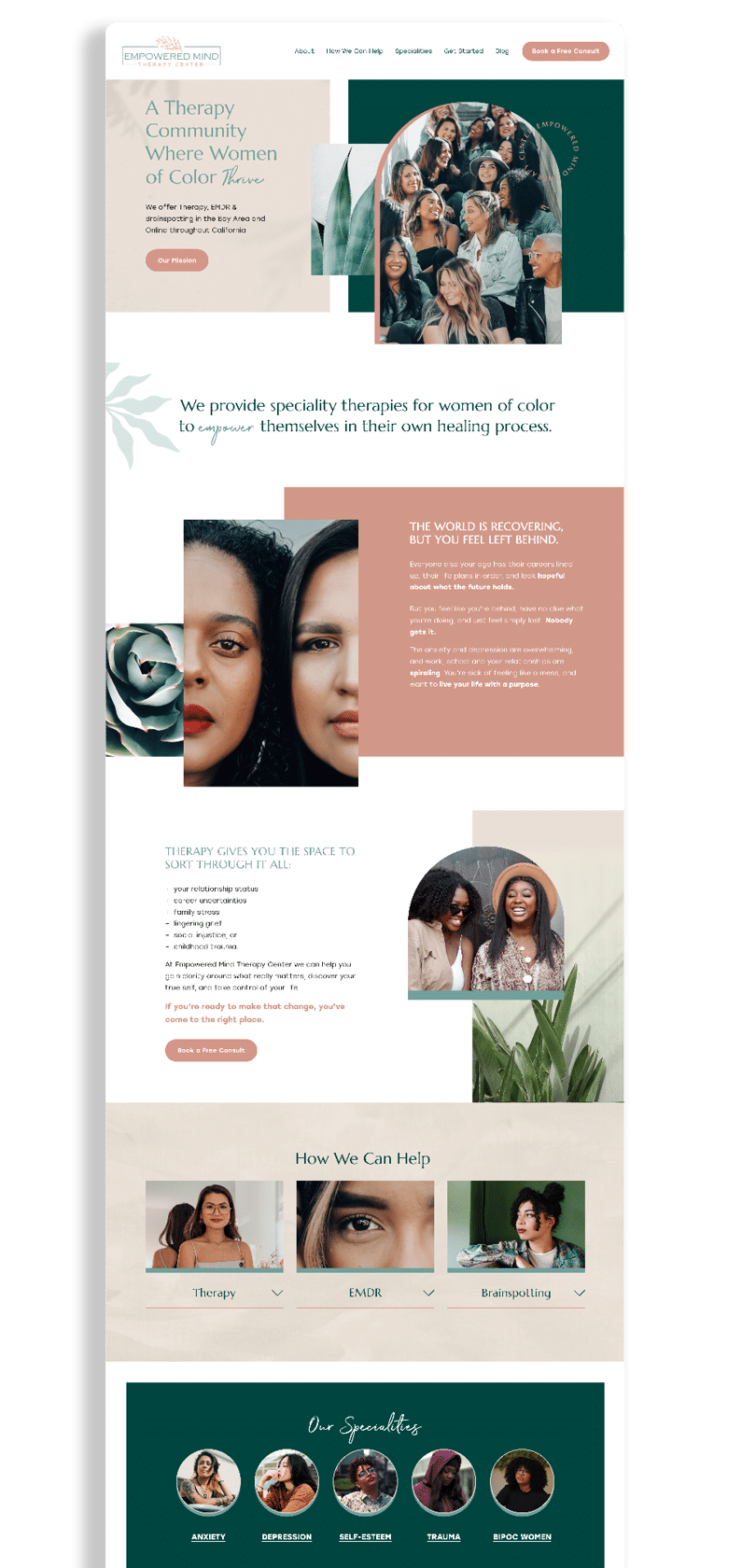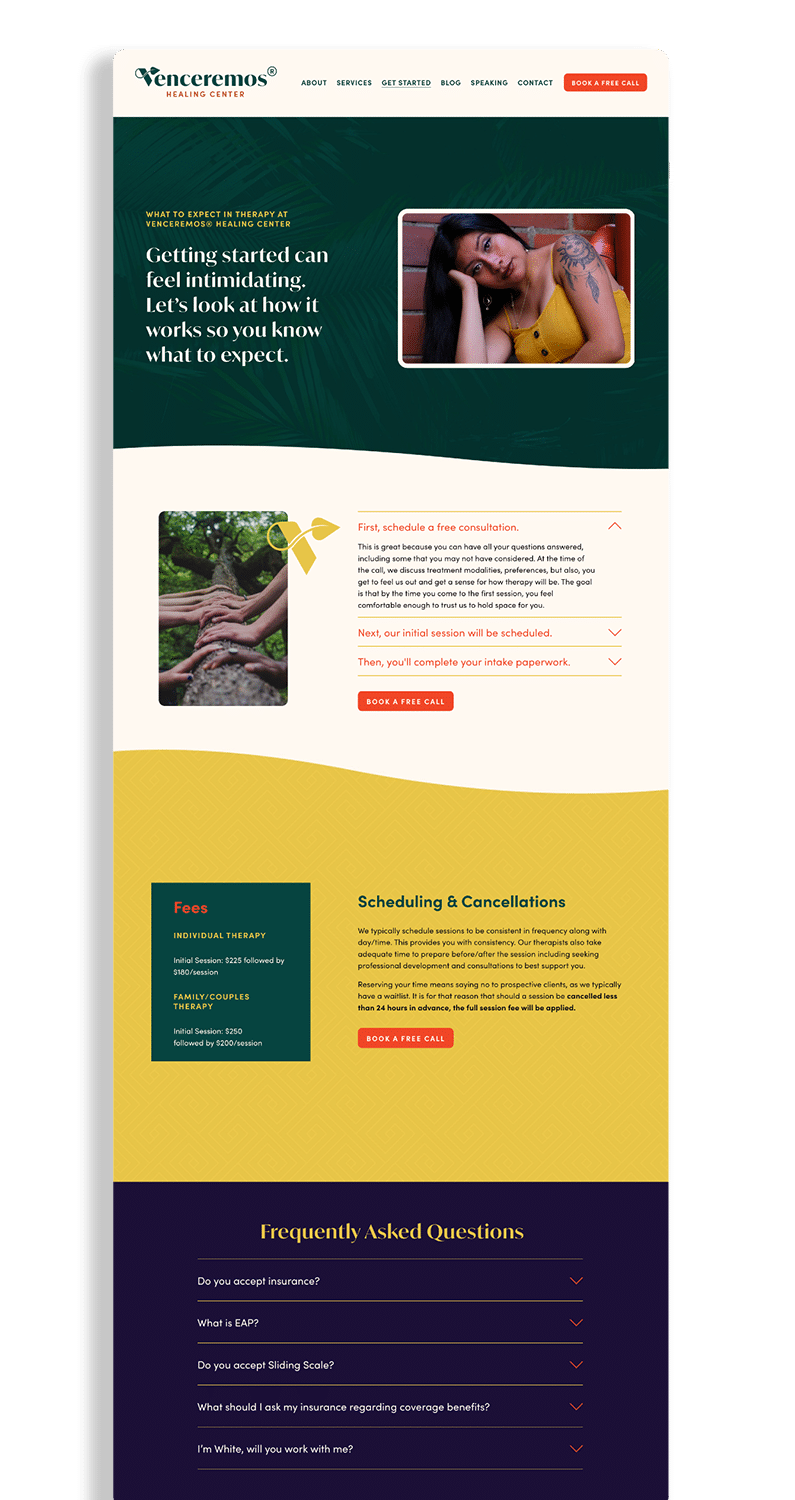Are you even a practicing therapist if you don’t have a website? I’m being facetious, but the fact of the matter is, therapy has a business side. And businesses in this day and age need a way to be found, which tends to include having an online presence. Does this mean you need an actual website or is being listed on sites like Psychology Today good enough? Let’s dive in to the why, how and other best practices when it comes to how you present yourself online as a mental health professional.
Meet Anjana Duff
Anjana is the creative talent behind Humming Soul Creative, which has produced brilliantly designed websites and branding for many therapists. While researching podcasts for therapists (stay tuned for some future articles), I came across a website she made and reached out with a few questions. She graciously responded so without further ado, here is a spotlight on Anjana Duff.
How long have you been working in web design and how did you get started?
I started working in web design in 2018. My mom ran her graphic design business from our family home, so I started learning from her at a young age. I was a yoga teacher and built a blog of my own in 2011, then later collaborated with a web designer to bring my full website vision to life. I discovered that I could apply my graphic design skills to update my own website, then later began brand/website design for yoga teachers and wellness coaches. I furthered my knowledge and honed my skills working at a graphic design/branding agency before taking my web design business full time.
What made you decide to focus on websites and templates for therapists?
I was already designing for wellness coaches, but I saw a huge problem with most therapist websites I came across. They were outdated, generic, impersonal, and did not give an accurate representation of the therapist’s personality, style, and approach. I saw a disconnect that I believe deters therapy seekers from finding a good-fit therapist and getting the help they need. I learned the ins and outs of what’s needed on a therapist website, and have a knack for translating my clients’ vision into a website that authentically represents their work and attracts ideal clients.
What are the benefits of having a website as a therapist? Therapists can already appear in major directories like PsychologyToday.com and they can make social media accounts for free, do they need to have their own website?
PsychologyToday.com and social media accounts are great and helpful, but you do not own them. It’s crucial that therapists have their own website because you have full ownership and 100% control over it. And just as importantly, having your own brand and website provides a deeper level of connection and engagement with potential clients. When someone lands on your website, everything from the layout, design, copy (text), images, colors, and fonts are speaking to the person, whether they are aware of it or not. A therapist website should feel like the website version of the person. It should be an authentic representation of the therapist in order to connect with aligned clients. Also, a professional website is absolutely necessary to represent high-quality therapy services and the fees attached to them.



Some of Humming Soul Creative’s designs, courtesy Anjana Duff
What are the 3-5 biggest things a therapist should look out for when starting their website journey?
- It’s important that you know where you are in your business before investing in a website. If you’re just starting and know that a lot will change as you grow, a website template is a better option because it’s inexpensive and you can easily make changes yourself as you evolve. If you’ve had your practice for some time, you may be ready to invest in a custom website because you have a solid foundation of who you are, your mission, niche and ideal client.
- Avoid working with website companies that have huge monthly fees and outdated, generic designs that don’t accurately represent you and make no real connection.
- Remember the main focus of your website. It is not about listing your credentials or clinical jargon. Your main goal is to connect with your ideal clients. Everything on your website should speak directly to them and their current experiences leading them to reach out. You want everything to feel accessible, relevant and human.
- Show up authentically. What is authentic about you as a therapist and how can that be translated on your website? If you’re working with a website designer, make sure they get you and your vision.
- Just launch! Don’t let overwhelm, procrastination or perfectionism keep you from launching your website. Again, you can always make updates, and people are out there that are looking for your unique value.
How is it working with therapists? I ask because when I made websites for clients back from 2009 to 2013 it was challenging to find the right questions to ask that would lead both myself and the client to what the final result should look like. Therapists are masters at asking questions and digging for real truths and I wonder if that somehow becomes relevant in how they work with others.
I love working with therapists, getting inside their world, and translating it to a website that authentically reflects their work. I’ve had clients say that it’s a therapeutic process to collaborate with me because it does require you to go deep into who you are as a therapist, your mission, and to get inside the minds of who you’re wanting to serve. There’s a collaborative magic that happens which results in a website that truly feels like the therapist and engages the people who most need what they have to offer.
For therapists that are maybe a bit more tech-savvy and could handle putting together a site on their own through Squarespace, Wix or WordPress, what would you recommend for them?
Squarespace, hands down! Whether you’re a bit more tech-savvy or more of a beginner, Squarespace is incredibly user-friendly, super customizable on desktop and mobile views, and SEO friendly. I started designing websites on WordPress, but switched over to Squarespace when I realized how easy it is to make a one-of-a-kind, professional, modern website.
For therapists that are business-savvy, I imagine they would be more interested in understanding the ROI of having a website. Do you recommend specific analytics tools that could help them track the benefits of their website?
Yes, Squarespace has great in-depth analytics tools built in. You can easily see who is visiting your website and how they’re interacting with it. You can keep track of traffic, how users are navigating your site, popular pages/content, form and button conversions, what search keywords led them to your website and more.
One thing we didn’t cove that I’ll add here, is that I believe a nice website helps build trust with potential clients. If given the choice between two equal therapists, personally I would choose the one who invests in their business. I would take comfort in the display of professionalism and to me it is symbolic of keeping up with the times.
Get in touch with Anjana

If you are a therapist interested in getting a killer website, check out Humming Soul Creative. You can visit Anjana’s website https://hummingsoulcreative.com/ and find her on Instagram @hummingsoulcreative and Facebook https://www.facebook.com/hummingsoulcreative.



